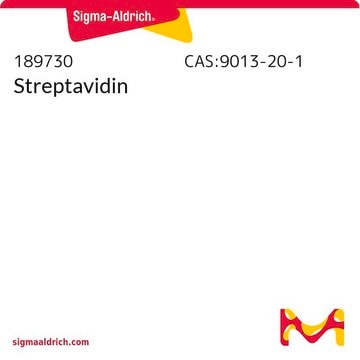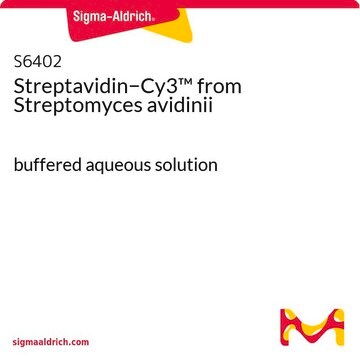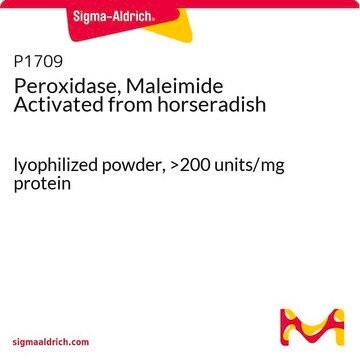S9415
Streptavidin−Maleimide from Streptomyces avidinii
Synonym(e):
Streptavidin Conjugate
About This Item
Empfohlene Produkte
Kennzeichnungsgrad
4-10 mol maleimide per mol Streptavidin
Qualitätsniveau
Eignung
suitable for direct conjugation to compounds containing free sulfhydryl groups
Lagertemp.
−20°C
Allgemeine Beschreibung
Anwendung
Physikalische Form
Angaben zur Herstellung
Haftungsausschluss
Lagerklassenschlüssel
11 - Combustible Solids
WGK
WGK 3
Flammpunkt (°F)
Not applicable
Flammpunkt (°C)
Not applicable
Persönliche Schutzausrüstung
Eyeshields, Gloves, type N95 (US)
Analysenzertifikate (COA)
Suchen Sie nach Analysenzertifikate (COA), indem Sie die Lot-/Chargennummer des Produkts eingeben. Lot- und Chargennummern sind auf dem Produktetikett hinter den Wörtern ‘Lot’ oder ‘Batch’ (Lot oder Charge) zu finden.
Besitzen Sie dieses Produkt bereits?
In der Dokumentenbibliothek finden Sie die Dokumentation zu den Produkten, die Sie kürzlich erworben haben.
Kunden haben sich ebenfalls angesehen
Unser Team von Wissenschaftlern verfügt über Erfahrung in allen Forschungsbereichen einschließlich Life Science, Materialwissenschaften, chemischer Synthese, Chromatographie, Analytik und vielen mehr..
Setzen Sie sich mit dem technischen Dienst in Verbindung.











